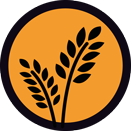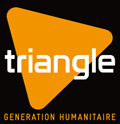AREA OF EXPERTISE

Food security and livelihood

AREA OF EXPERTISE

Food security and livelihood
FUNDING
One component of the food crisis currently affecting the Democratic People's Republic of Korea (DPRK) is the lack of protein in the diet. This deficiency particularly affects 0 to 6 years old children (11% of the population), whose specific nutritional needs cannot be fulfilled. Support by social institutions being the standard for young children in DPRK, improvement and sustainable diversification of their diet goes with support to the units of food production dedicated to these institutions.
The main objective of this program is to develop the fish industry by increasing fish production (based on an integrated system fish farming-agriculture-breeding) and by improving distribution and conservation capacities (respecting health standards) as well as the capacity of North Korean actors to manage and develop the fish industry in a sustainable way.
This program is conducted in two fish farms in the province of South Hamgyong: Yonggwang and Sinhung. It involves Korean and French experts. Its duration (34 months) enables the provision of technical support for three consecutive seasons.
Firstly, the aim is to set up in the two farms an integrated fish production system with complementary farming and breeding activities: agricultural activities provide the organic material necessary to feed fish and livestock. The sludge generated by the breeding ponds, and the manure from the cattle is used to fertilize crops, and this same manure can also, after processing, be used to feed the fish. This search for balance between aquaculture, agriculture and breeding optimizes fish production and solves the problem of feeding the fry, the main difficulty encountered by farms.
Secondly, the aim is to increase the capacities of conservation (storage) and distribution (transport) of fish in compliance with health standards. Indeed, post-production stages currently have major shortcomings, limiting the availability of fish products for the targeted institutions. The main actors - fish farms, people’s committees and children institutions –, lacking adequate logistics means, cannot prevent a major loss from occurring between the production and the distribution to institutions, accompanied by significant health risks.
And finally, this program aims to improve the capacity of North Korean actors to manage and sustainably develop the fish sector. One of the major issues, in the specific context of North Korea, concerns the sustainability of the improvements made, the supply of inputs and spare parts in case of technical failure of the installations being difficult.
Different training sessions, economic and technical feasibility studies, and the implementation of pilot income generating activities are the main axes of this last objective. Opportunities existing at the economical level will be studied in order to find solutions related to the supply of key inputs needed for production.
With the support of the AAP, the rehabilitation and strengthening of the means of production have been achieved.
Rehabilitation and strengthening of the protection installations against floods
Protection works and rehabilitation of production structures
Food distribution in the children institutions
Improvement of the warning systems in case of natural disaster